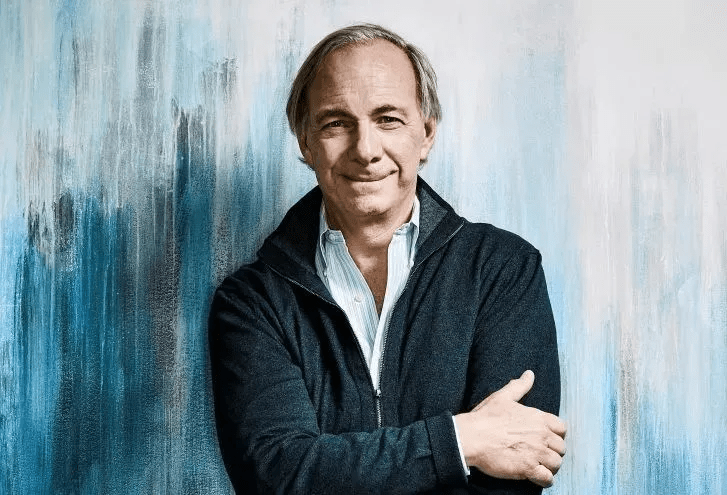Ray Dalio, founder of Bridgewater Associates, has recently completely exited the investment giant he founded 50 years ago, continuing to focus on its future in the roles of 'client and mentor.' On this occasion, in his new book (Why Nations Fail), he combines history and data to predict the five major changes in the world over the next five years.
Here is a brief overview to help you gain insight into the upcoming world order.
1. Debt crisis: The next danger signal is imminent. Dalio points out that the world is in the late stage of a 'great debt cycle,' with major countries like the US and the G7 having high levels of debt, relying on central banks to 'print money' to cover deficits. In the next five years, the probability of debt asset restructuring or monetization is as high as 65%, and up to 80% within ten years.
Danger signals: Government bonds are being massively sold off, leading to oversupply, forcing central banks to choose between high interest rates or continuing to print money, resulting in currency depreciation.
Response strategy: Dalio suggests the '3% three-part' plan, balancing fiscal tightening, debt restructuring, and monetary easing, while enhancing productivity and reducing debt burden. Otherwise, the risks of debt tightening and economic recession will appear within 2-3 years.
2. Political division: The extreme shift from democracy to authoritarianism is intensifying global political division, with a rise in populism and internal conflicts in democratic countries reminiscent of the turmoil of the early 20th century. Dalio predicts that in the next 3-5 years, democracy may transition to authoritarianism, with financial and political power superseding the law.
US Case: Trump's 'America First' policy boosts competitiveness by cutting government spending, but it may weaken the social support system, leaving the bottom 60% of the population in a precarious situation.
Recommendation: Pay attention to the living conditions of the underprivileged to ensure that the system creates fair opportunities for the majority; otherwise, social unrest will escalate.
3. International order: The relative decline of the US and the rise of China are shifting the world from cooperative multilateralism to confrontational unilateralism, with weaker empires (like Europe) facing threats. Dalio believes that the US is accelerating its relative decline compared to China, with increasing conflicts in technology, trade, and other areas, although the likelihood of military war is low.
Trend: Alliance relationships are changing rapidly, similar to the pre-World War II era, where victory takes precedence over loyalty. Europe may move closer to China, while the US tends to ally with far-right countries.
Impact: The tech war (in chips, AI, etc.) will reshape policies and investments, with increased global trade but higher risks.
4. Natural disasters: Rising probabilities, high costs. Climate change, population density, and globalization have exacerbated the risks of natural disasters such as droughts, floods, and epidemics, with costs far exceeding the fiscal capacity of various countries. Countries in the Global South may face internal turmoil and waves of migration due to resource scarcity, further destabilizing global politics.
Response: A significant amount of funding is needed to prevent or repair damages, but currently, countries are burdened by heavy debt and lack action.
5. AI revolution: Exponential growth in GDP and life expectancy. AI will drive technological advancement, bringing about the largest changes since the Industrial Revolution, affecting all aspects from productivity to life expectancy. The US and China lead the competition in AI and chips, but weak intellectual property protection and widespread technology replication are concerns.
Outlook: AI will drive exponential growth in GDP and life expectancy, but the benefits and costs remain unclear. Countries and companies that effectively utilize AI will stand out, while laggards will be eliminated.
Double-edged sword: Technology can benefit humanity but may also exacerbate conflicts.
How to cope with great changes? Dalio believes that the next 5-10 years will be a period of major transformation in the restructuring of order, akin to 'traveling through time and space.' The key lies in whether humanity can cooperate to meet challenges rather than fighting against each other.
Recommendation: Act based on probabilities and diversify investments.
Stick to fundamental principles and choose well-managed countries.
Maintain moderate concern and find principles to respond to the changing situation.
Dalio finally reminds us: 'No worries means worries, worries mean no worries.' May we greet the future with wisdom!